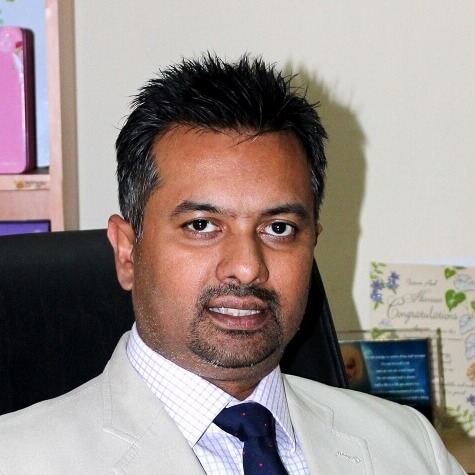After Hygge And Lagom Businesses Should Follow The Mantra Of Prajāva
The Sri Lankan word roughly translates to 'community', should businesses follow its meaning?

The Swedish lifestyle concept has become big news in recent years. First Hygge (cosy) and then Lagom (just enough) have become massively popular, even boosting Sweden to the Top 10 ranking in the World Happiness Report.
This got me thinking – what international concept would most benefit the business world at this moment in time? I’d like to propose the word Prajāva from my native Sri Lanka.
Introducing Prajāva
Prajāva means “community” and I’d like to argue that the idea of community has never been more important to a business than it is now.
For me, Prajāva in a business is about a mindset change where a business goes from thinking of itself as part of the community, to being the centre of it. Counterintuitive as it may seem, it is by striving to be the heart and soul of a community that we can serve it better, and by doing so, grow sustainably.
Who’s in your Prajāva?
A Prajāva mindset means understanding exactly who is in your community, and how every decision you make can have an impact on each member.
Whether you want it to or not, your community includes everyone from customers (at home and overseas), suppliers, employees and their families, investors, people who live near your business, as well as intangibles such as the environment.
In short, a business community is much bigger than many businesses appreciate. And this gives businesses a huge power to affect change when harnessed correctly.
The benefits of Prajāva – no business is an island
My philosophy is that the more a business looks after a community, the more a community looks after a business. So by considering the interests of customers, employees, suppliers’ et al. stronger and more fruitful relationships are formed. This is not about quick wins but a long-term strategy that puts sustainable relationships at its core.
There is mounting evidence to suggest that sustainable businesses grow most quickly. A recent survey by a leading sustainability accreditation B Corp revealed that purpose-led businesses grow 28 times faster than normal businesses.
Why now?
It’s no secret that consumers love sustainability, and recently I’ve noticed an even bigger appetite for brands who are committing to doing things differently.
The key thing is to make sure that your strategy is long term and takes into consideration the whole community, not just parts of it.
There is a great example of this from the tea industry, recently there has been a big move towards compostable tea bags, often produced using genetically modified corn. So while this move benefits a small part of our community and on the surface does solve the plastics issue, in my view, it actually creates other, potentially more serious issues for others within our circle.
So whilst it’s often easier to think short term, I hope that businesses use the Prajāva mindset to find solutions and create long-term strategies that are good for all members of their community.
Getting started
Here are my seven steps to instilling a Prajāva mindset in your business:
- Put a long-term plan in place – Pin down and visualise your end mission and mark out steps that will help to drive it towards fruition.
- Map your community – Connect the dots between different groups in your community, realising the size of your community will set your business apart and position it for uncapped growth.
- Make a list of ways to help individual parts of your community.
- Focus first on projects which also most help your business – In other words create win-win situations. Our initiative the Big Game has worked wonderfully, we pay our employees a share of the profits every quarter and also get them involved in programmes like open book management. This ultimately drives employee engagement, and increases our productivity too.
- Recognise you can’t help everyone all the time but every little helps.
- Build the culture – Create a practical guide of ways that members of your community can independently implement sustainable means of working in their day to day. Before you know it, these actions will become second nature and you have built a culture.
- Set targets and measure efficiency – The only way to track results and impact of new approaches is through setting measurable outcomes. So get going, set KPIs and stay motivated in achieving them.
Suranga Herath is CEO of the English Tea Shop.
Thanks for signing up to Minutehack alerts.
Brilliant editorials heading your way soon.
Okay, Thanks!


